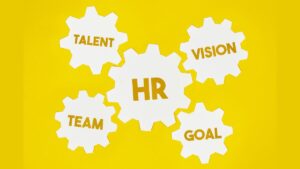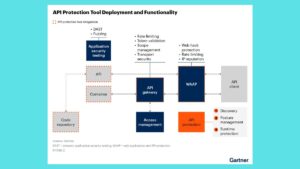HR Management in the Age of HRTech: Transforming Human Resources

The landscape of human resources (HR) is undergoing a significant transformation, driven by advancements in technology. HRTech, short for Human Resources Technology, encompasses a broad range of software and tools designed to improve and streamline HR processes, from recruitment and onboarding to performance management and employee engagement. This blog explores the key components of HR management in the context of HRTech, current trends, benefits, challenges, and the future of HR technology.
Understanding HRTech
HRTech refers to the technologies that facilitate the management of human resources within an organization. These technologies can vary widely in their functions and applications, including:
- Applicant Tracking Systems (ATS): Streamlining the recruitment process by automating job postings, tracking applicants, and managing resumes.
- Human Resource Information Systems (HRIS): Centralizing employee data, including payroll, benefits, and performance records.
- Performance Management Tools: Enabling organizations to set goals, provide feedback, and evaluate employee performance effectively.
- Learning Management Systems (LMS): Supporting employee training and development through e-learning platforms.
- Employee Engagement Tools: Collecting feedback and measuring employee satisfaction to foster a positive workplace culture.
Current Trends in HRTech
1. Artificial Intelligence (AI) and Machine Learning
AI and machine learning are becoming increasingly prevalent in HRTech solutions. These technologies can analyze vast amounts of data to identify patterns and insights, enabling HR professionals to make data-driven decisions. AI-powered tools can assist in recruiting by screening resumes, predicting candidate success, and even conducting initial interviews through chatbots.
2. Remote Work and Flexible Solutions
The shift towards remote work has accelerated the demand for HRTech solutions that support flexible work arrangements. Tools that facilitate virtual collaboration, performance monitoring, and employee engagement are essential for managing remote teams effectively. HRTech platforms are evolving to offer features that cater specifically to the needs of remote employees.
3. Data Analytics and Workforce Planning
Data analytics is a powerful tool for HR management, enabling organizations to gain insights into employee performance, turnover rates, and overall workforce health. Advanced analytics can help HR professionals identify trends, forecast future workforce needs, and make strategic decisions that align with business goals.
4. Focus on Employee Experience
Organizations are increasingly prioritizing employee experience (EX) as a critical component of HR management. HRTech solutions that enhance EX through personalized learning opportunities, career development programs, and feedback mechanisms are gaining popularity. By investing in EX, organizations can improve employee satisfaction, retention, and productivity.
5. Integration of HR Systems
The need for seamless integration between various HR systems is becoming more critical. Organizations are seeking comprehensive HRTech platforms that can connect different functions, such as recruitment, performance management, and payroll. This integration allows for a more cohesive and efficient HR strategy.
Benefits of HRTech Solutions
- Increased Efficiency: Automating HR processes saves time and reduces administrative burdens, allowing HR professionals to focus on strategic initiatives rather than repetitive tasks.
- Enhanced Decision-Making: Data-driven insights enable HR leaders to make informed decisions that align with organizational goals and improve workforce management.
- Improved Employee Engagement: HRTech tools facilitate communication, feedback, and recognition, fostering a positive work environment that enhances employee morale and engagement.
- Streamlined Recruitment: Automated recruitment processes enable organizations to identify and attract top talent more effectively, reducing time-to-hire and improving candidate quality.
- Compliance and Risk Management: HRTech solutions help organizations maintain compliance with labor laws and regulations, reducing the risk of legal issues and penalties.
Challenges Facing HRTech Adoption
1. Resistance to Change
One of the biggest challenges in implementing HRTech solutions is resistance from employees and management. Change can be met with skepticism, especially if employees are accustomed to traditional HR practices. Effective change management strategies and training are essential to overcome this hurdle.
2. Data Privacy and Security Concerns
With the increasing reliance on data-driven HR solutions, concerns about data privacy and security are paramount. Organizations must ensure that they comply with data protection regulations and implement robust security measures to safeguard sensitive employee information.
3. Integration Complexities
Integrating new HRTech solutions with existing systems can be complex and time-consuming. Organizations must carefully assess their current infrastructure and ensure that new tools can seamlessly integrate with legacy systems.
4. Cost Considerations
While HRTech solutions can deliver significant benefits, the initial investment can be substantial. Organizations must evaluate the return on investment (ROI) of HRTech solutions and consider the long-term value they provide.
The Future of HR Management and HRTech
The future of HR management will be increasingly shaped by technological advancements and evolving workforce dynamics. Key trends to watch include:
1. Emphasis on Diversity, Equity, and Inclusion (DEI)
Organizations are placing greater importance on diversity, equity, and inclusion in their hiring and workplace practices. HRTech solutions that facilitate unbiased recruitment, employee resource groups, and inclusive workplace policies will be essential.
2. Continuous Learning and Development
The pace of change in the workplace necessitates continuous learning and development. HRTech platforms that support personalized learning paths, skill assessments, and upskilling opportunities will play a crucial role in employee growth.
3. Wellness and Mental Health Initiatives
Employee wellness and mental health are becoming top priorities for organizations. HRTech solutions that offer wellness programs, mental health resources, and stress management tools will be increasingly integrated into HR strategies.
4. Hyper-Personalization of Employee Experience
As organizations recognize the importance of individualized employee experiences, HRTech will focus on hyper-personalization. Tailoring programs and resources to meet the unique needs of each employee will enhance engagement and retention.
5. Enhanced Analytics Capabilities
The future of HRTech will see advanced analytics capabilities that enable organizations to predict workforce trends, identify skill gaps, and inform strategic decision-making. Predictive analytics will help HR leaders proactively address challenges before they arise.
Conclusion
HR management is evolving in tandem with the rapid advancements in HRTech. As organizations embrace technology to streamline processes and enhance employee experiences, the role of HR professionals is shifting from administrative tasks to strategic leadership. By leveraging HRTech solutions, organizations can improve efficiency, foster employee engagement, and drive overall business success.
The future of HR management will be characterized by a focus on data-driven decision-making, personalized employee experiences, and a commitment to diversity and inclusion. As the HRTech landscape continues to grow, organizations must adapt to these changes to remain competitive and ensure a thriving workplace culture. Embracing HRTech is not just a trend; it is an essential step towards building a more efficient, engaged, and future-ready workforce.







